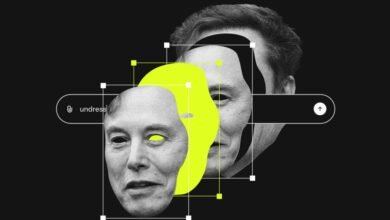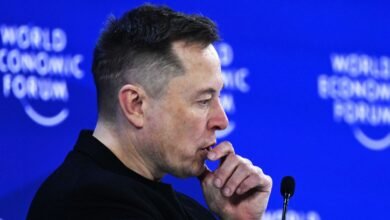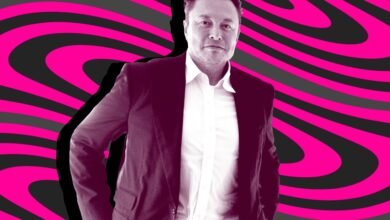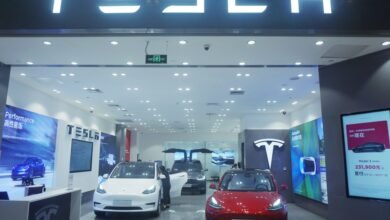Tesla’s New ‘Master Plan’ Criticized as AI-Generated Hype

▼ Summary
– Tesla’s latest Master Plan 4 shifts focus from electric vehicles and renewable energy to AI, robotics, and the concept of “sustainable abundance.”
– The plan is notably vague and lacks concrete proposals, contrasting with previous plans that outlined specific, actionable goals like affordable EVs and self-driving vehicles.
– Tesla’s brand and sales have declined due to increased competition and Elon Musk’s political activities, making this new plan an attempt to revive the company’s vision.
– Critics describe the plan as philosophical and buzzword-heavy, resembling a TED talk more than a strategic document with deadlines or measurable targets.
– The document’s emphasis on “infinite growth” is seen as unrealistic, given Tesla’s unfulfilled past promises and current product shortcomings.
Tesla’s latest strategic blueprint, dubbed “Master Plan 4,” has drawn sharp criticism for its lack of substance and reliance on buzzwords rather than actionable goals. The document, which runs under a thousand words and was published on Elon Musk’s X platform, marks a significant departure from the company’s earlier roadmaps. Where previous plans laid out specific product milestones, like the Roadster, Model 3, or Semi, this iteration leans heavily into abstract concepts like artificial intelligence, humanoid robots, and sustainable abundance.
Observers were quick to note the document’s stylistic similarities to AI-generated text, complete with repetitive phrasing and an overly optimistic tone. More troubling, however, is its vagueness. Unlike earlier master plans that detailed tangible steps, building affordable EVs, developing autonomous driving, or expanding solar energy, this version offers little beyond philosophical musings on infinite growth and democratized technology.
The timing of this release is telling. Tesla faces mounting challenges, including slumping sales in key markets and intensified competition from both legacy automakers and new EV entrants. Musk’s increasingly polarizing public persona and political engagements have also alienated portions of the brand’s core audience. In this context, Master Plan 4 reads less like a strategic guide and more like an attempt to shift attention toward futuristic, yet unproven, ambitions.
Social media reactions echoed this skepticism. Many users described the plan as resembling a “glorified TED Talk” rather than a concrete business strategy. Critics pointed out the absence of deadlines, measurable targets, or clear deliverables, elements that had characterized earlier Tesla announcements.
Musk himself has acknowledged shortcomings in past plans. He recently admitted that goals from the 2016 Master Plan remain incomplete, though he promised their fulfillment “next year.” He also described the 2023 plan as overly complex, positioning this latest version as a “concise” alternative. Yet conciseness shouldn’t come at the cost of clarity or credibility.
The emphasis on “sustainable abundance” aligns with a broader trend in tech and policy circles, where the term has been adopted to advocate for deregulation and accelerated innovation. However, in Tesla’s hands, it feels more like marketing rhetoric than a meaningful framework. The document’s assertion that “growth is infinite” strains credulity, particularly from a company that has repeatedly overpromised and underdelivered on foundational technologies like full self-driving and humanoid robotics.
From solar roofs and robotaxis to the canceled Model 2, many of Tesla’s most ambitious projects have failed to materialize at scale. The company’s robots still require significant human intervention, and its autonomous driving technology remains a work in progress. Against this backdrop, a master plan filled with aspirational language but scant detail comes across as more hype than substance.
What emerges from Master Plan 4 is not a renewed vision for sustainable transport, but a reflection of Musk’s current preoccupations: AI, robotics, and a libertarian-inflected vision of techno-optimism. For a company once celebrated for moving the needle on electric vehicles and clean energy, this pivot feels both telling and disappointing. Rather than grounding its ambitions in achievable engineering, Tesla appears content to chase the next big idea, even if it’s built on little more than buzzwords.
(Source: The Verge)





